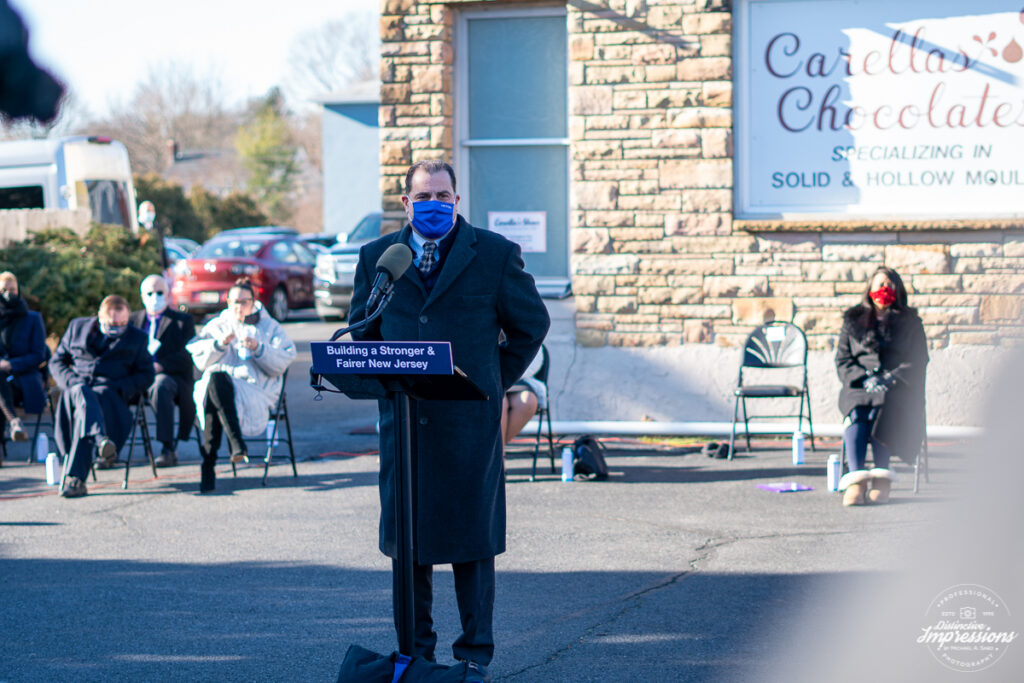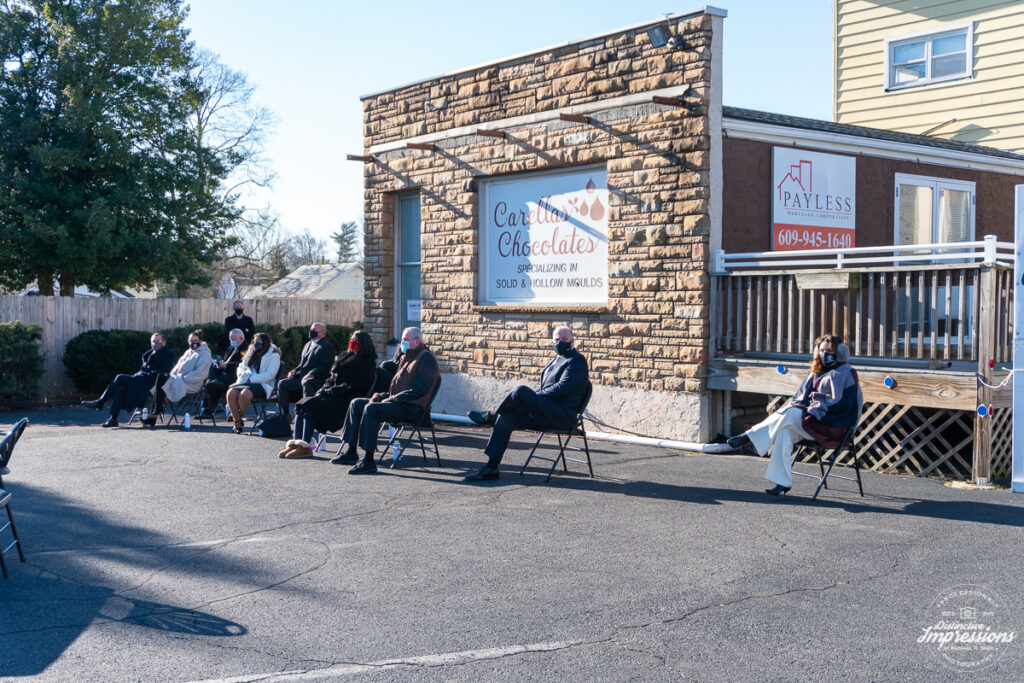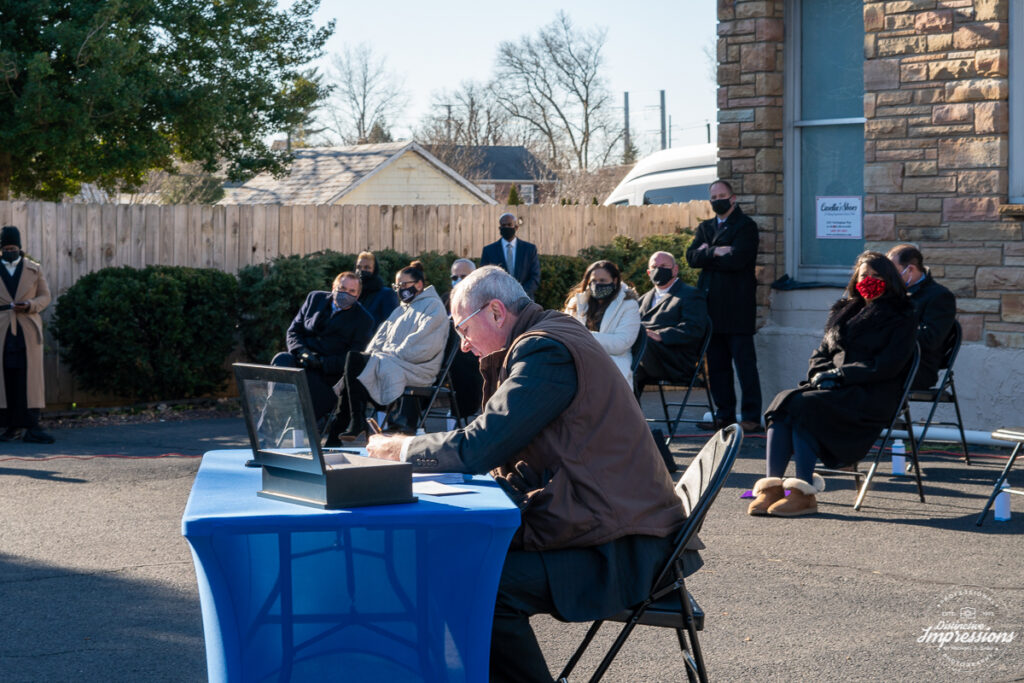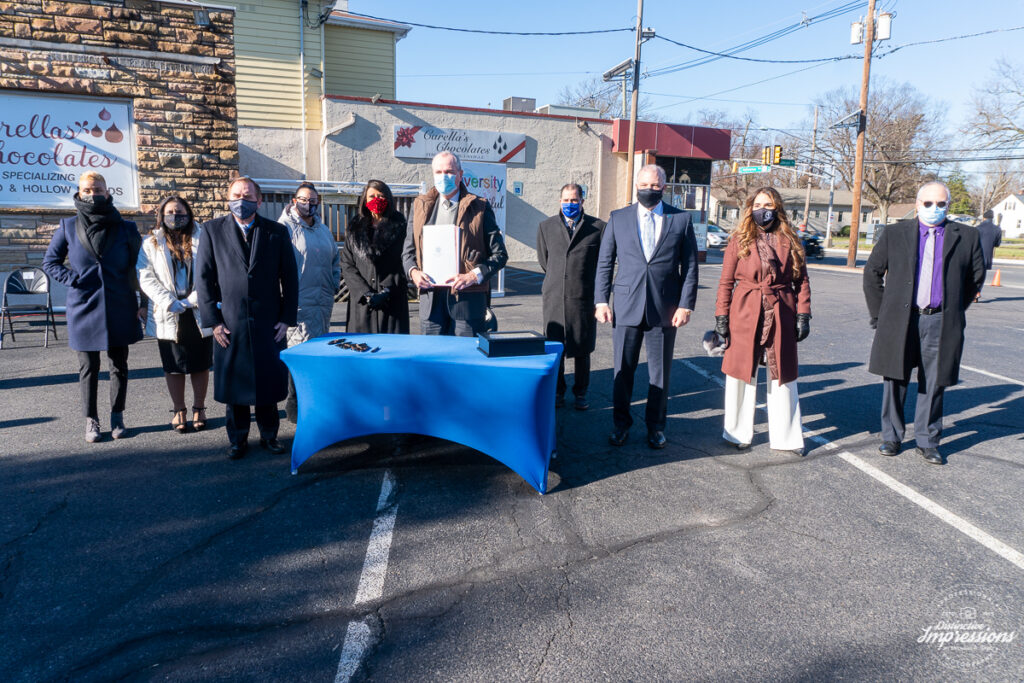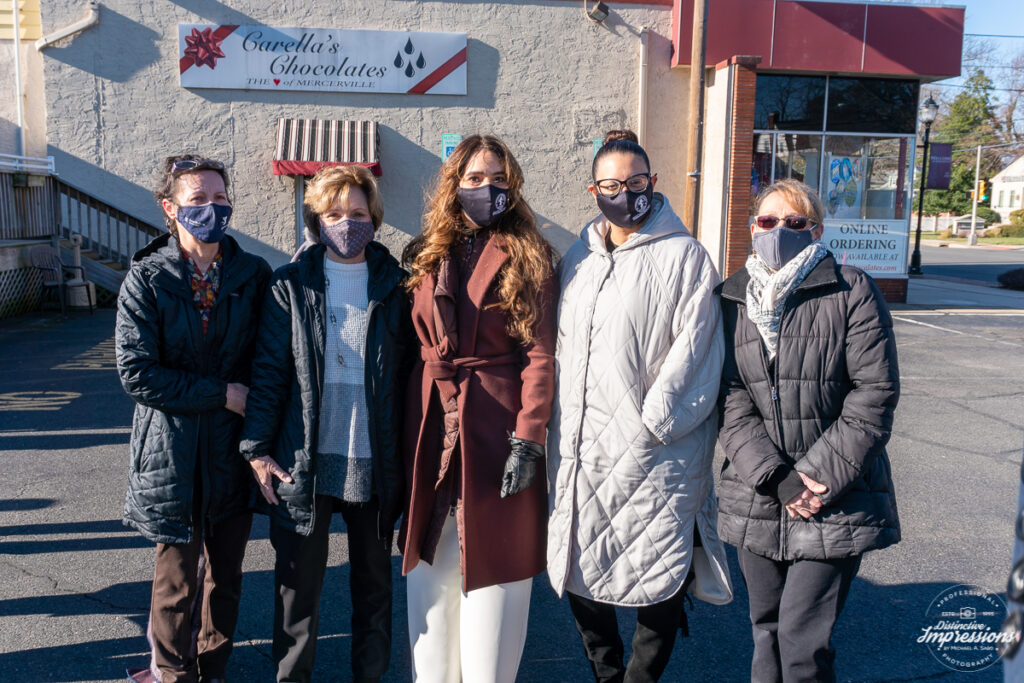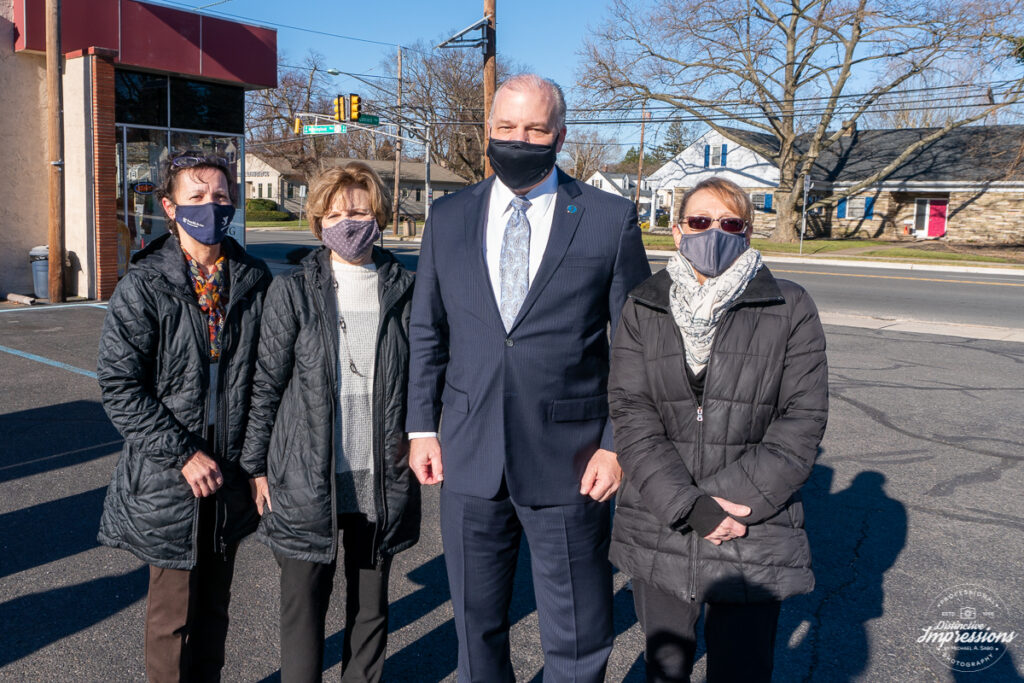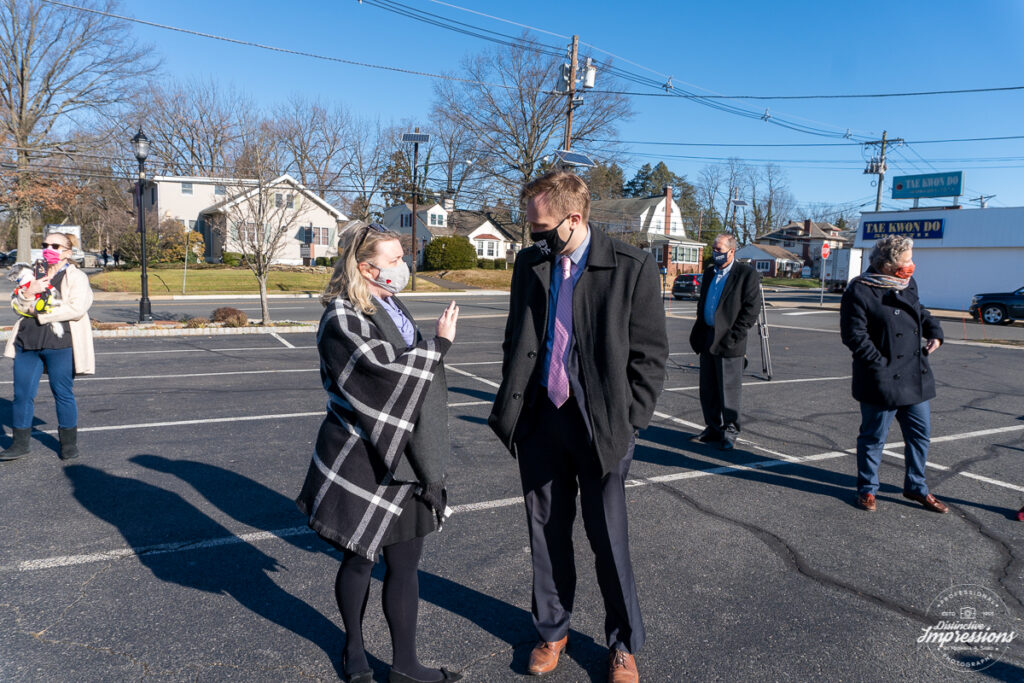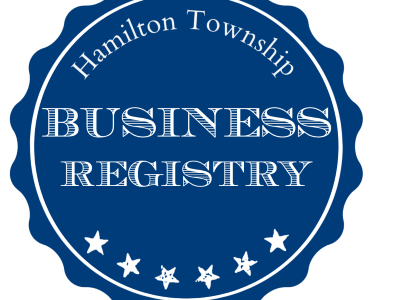Bill Will Provide Aid to Small Businesses and Usher in New Era of Economic Development
It took nearly 3 years of back and forth to draft, and due to the urgency of the COVID-19 pandemic’s strangle hold on businesses, it was fast tracked through the legislature and signed into law today in Hamilton Township by Governor Phil Murphy.
The signing of the bill took place at a very recognizable, small family-owned Hamilton business, Carella’s Chocolates and Gifts. The Carrella family has been in business dating back to the 1950s when the current owner’s grandfather came to this country from Italy and opened a shoe repair shop in Trenton. It then morphed into a shoe store and relocated to Hamilton where the family added the addition of Hallmark cards and gifts store which now includes handmade onsite chocolates.
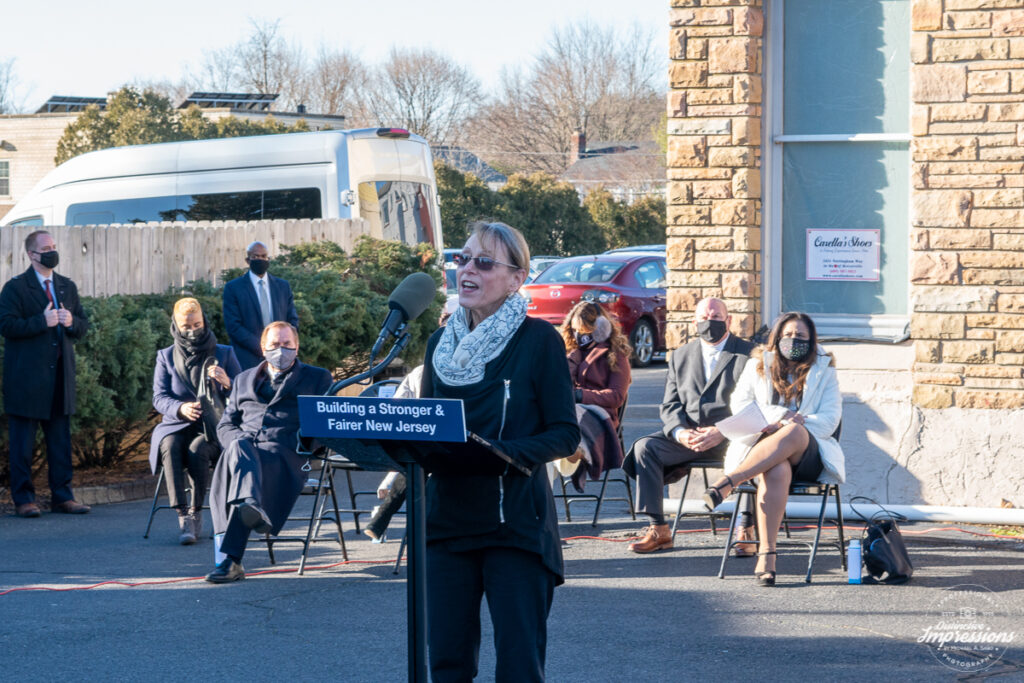
“I am honored the governor has chosen our small family business to sign this economic recovery package. His decision to sign this bill at our location proves his dedication to small businesses, explained Connie Carrella of Carella’s Chocolates and Gifts.”
The location of Carella’s was chosen as more than just a symbolic gesture, but to highlight one of the successful programs put into place by the NJEDA during the pandemic that helped Carrella’s obtain an e-commerce web presence through the E-Commerce Technical Assistance Program. The program was piloted to help businesses that normally rely on foot traffic and in-person transactions identify and implement the website and e-commerce capabilities they need to stay in business while complying with current health guidelines and changing customer preferences. Through the program, Carella’s website was redesigned for online ordering by Positive Solutions LLC, an NJDEA approved Technical Assistance Provider and based in Robbinsville.
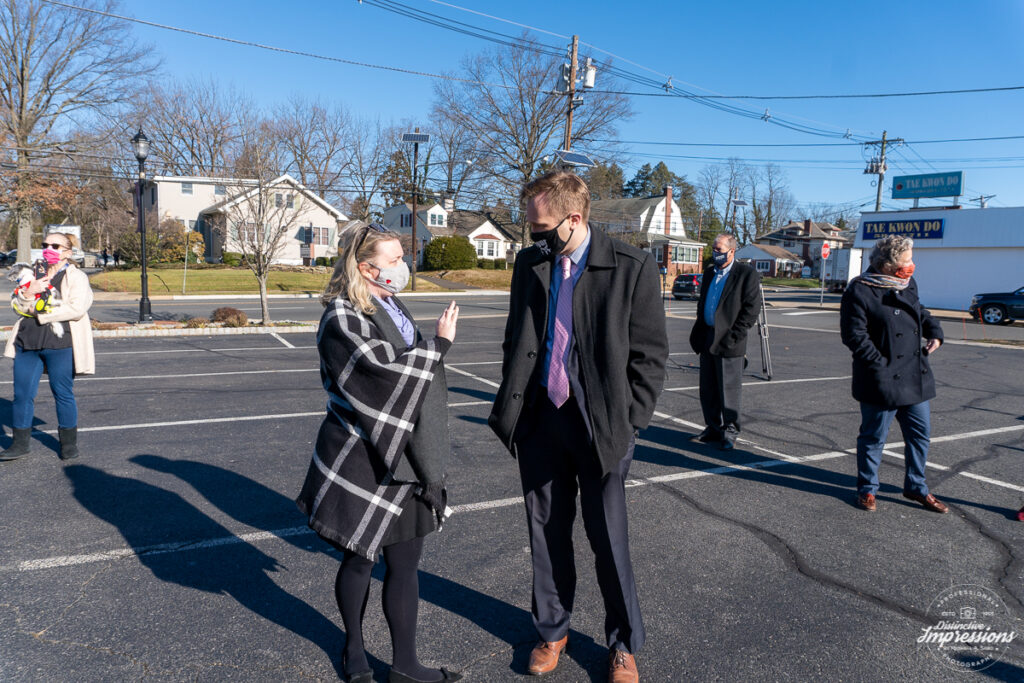
“As a small business owner it has been difficult to navigate through these tough times, how ever thanks to our local officials here in Hamilton and at our state government I have been able to take advantage of programs put in place to help us”, continued Carella.
The New Jersey Economic Recovery Act of 2020 aims to create new incentive programs to attract businesses to settle in the Garden State and keep businesses from leaving. It also updates controversial economic development programs that expired 18 months ago.

“These programs are the product of nearly three years of hard work, during which we received input from hundreds of voices on how best to structure our state’s recovery and growth,” said Governor Phil Murphy. “I am immensely proud of the result, which will not only provide much-needed relief for our small businesses, but will also fundamentally change economic development in our state while creating thousands of high-paying jobs for our residents.”
The legislation includes a host of new initiatives including the Main Street Recovery Finance Program, which will provide a direct $50 million appropriation for grants, loans, loan guarantees, and technical assistance to small and micro-businesses.
Under the new law, up to $1.5 billion in tax breaks could be awarded annually for six years, which could include an additional seventh year if there are still tax incentives yet to be awarded.
“Renewal of New Jersey’s tax incentive program was essential to ensuring our state’s competitiveness in attracting and retaining jobs and businesses in our global economy,” said Senate President Steve Sweeney. “I am pleased that the compromise we reached includes a sufficiently high cap on total incentives to enable New Jersey to compete for mega-projects, and that it ensures that all regions and sectors of our state will benefit from the various programs. I would like to thank Senators M. Teresa Ruiz and Paul Sarlo, former Senator Ray Lesniak, who served as our special counsel, and of course, Assembly Speaker Craig Coughlin and Governor Phil Murphy for working together to bring this legislation to fruition.”

“You know the word compromise, maybe in Washington(DC) they can learn it. It’s not poisonous, it’s actually a very good thing”, added Sweeney.
This bill will also bolster the state’s startup and entrepreneur economy through implementation of the Innovation Evergreen Fund, a first-of-its-kind program that will combine state funds with private capital to support innovative new businesses.
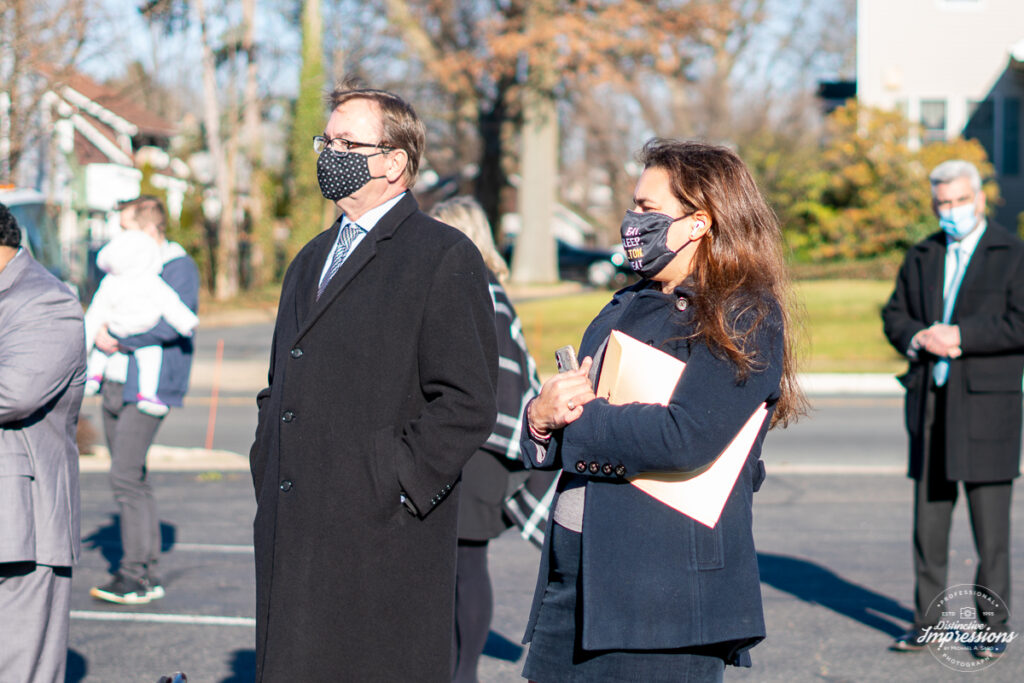
The new legislation also includes several cutting-edge programs designed to promote growth in New Jersey’s urban centers, including the Brownfields Redevelopment Incentive designed to facilitate the redevelopment of environmentally contaminated properties; the Historic Property Tax Credit, which will incentivize the restoration of historic buildings, many of which are located in New Jersey’s oldest and most distressed neighborhoods; and the Community-Anchored Development Program, which will incentivize the construction of innovative new developments by partnering with universities, hospitals, arts, and cultural organizations and give the state an equity stake in the development.
Business groups have largely praised the bill, calling it an important first step to prepare New Jersey for the economic slump due to the pandemic and “much-needed incentive program that will help bolster New Jersey’s economic future through job creation and development,” said Michele Siekerka, president of the New Jersey Business & Industry Association.

“This is comprehensive legislation which will grow new industries and foster innovation around the state. It will create greater investment in our communities by providing further incentives to locate in distressed municipalities, build affordable housing and redevelop brownfields,” said Senator M. Teresa Ruiz, the prime sponsor. “This law will help increase access to employment in high-growth industries, drive sustainable economic development and most importantly help our state to recover from the economic impact of the COVID-19 pandemic. This effort is balanced in its approach, it will ensure responsible investment, greater oversight and tangible community benefits.”
The legislation also includes a groundbreaking Food Desert Relief program designed to ensure that all communities have access to fresh, healthy food. Incentives would offset the cost of development of a fresh-food grocery store in an area designated as a food desert, while also strengthening existing community assets like bodegas, corner stores, and mid-sized retailers by equipping them with the necessary equipment and infrastructure to provide healthier food options.
The legislation reforms the state’s two main tax incentive programs, placing caps on the amount of incentives awarded each year, as well as over the life of the programs. The programs, which incorporate many of the recommendations of the Governor’s Task Force on EDA’s Tax Incentives, greatly enhance compliance restrictions to ensure that money is being well spent and jobs are being created, including the creation of an inspector general post to investigate claims of abuses within the programs.
The New Jersey Emerge program is a job creation tax credit focused on bringing new middle-class and well-paying jobs to our communities, with base and bonus structure for targeted industries and geographies.
The New Jersey Aspire program is a gap financing program to support commercial, industrial, mixed-use, and residential real estate development projects, with an emphasis on higher need communities.
Separate from the Emerge and Aspire program cap is a set-aside for large, transformative projects. There can be a maximum of ten such projects over the life of the incentives program.
This legislation will provide additional protections for organized labor, a longstanding promise of the governor’s, as well as community benefit agreements, which are designed to ensure an award recipient will engage and stay engaged with local government. For the first time, New Jersey’s economic development programs will include prevailing wage for building service work and labor harmony provisions, which will protect building trades and building service workers from unfair practices.
This sweeping legislation revamps several existing programs, including the successful Film and Television Tax Credit, which was expanded and enhanced to attract large studio construction to New Jersey, and the Offshore Wind Manufacturing credit, which now encompasses the entire state and will allow more businesses to qualify.
Several existing NJEDA programs have been folded into the legislation as well, including the Angel Investor Tax Credit, the Net Operating Loss Credit, and the New Jersey Ignite Program.




